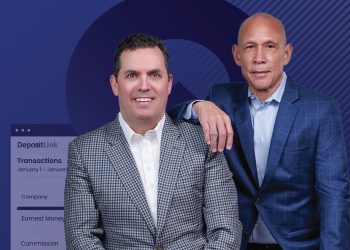RISMEDIA, March 1, 2010—Can America lead the “Mobile Frontier?” If mobile truly is the answer to everything as Google CEO Dr. Eric Schmidt stated a few weeks ago than we can be sure of three things: The advances in mobile hardware (handsets) that we have seen over the past 3 years will continue to be something to marvel at. Second, innovation in platforms and applications which allow business to provide and consumers to access information will keep pace with the advancements in handsets creating a one-touch world where answers are just a finger tip away. Finally, what is least often mentioned and most crucial to laying the ground work for all the excitement to come is the establishment of mobile broadband for the entire country.
For decades the United States has lagged behind other nations when it comes to mobile technology, now it seems the sleeping giant has awoken to a world gone mobile and they want to lead the frontier.
Last week we discussed how world leaders assembled at the Mobile World congress to share ideas, innovations, make deals and headlines. Meanwhile, back on U.S. soil, financial giant Morgan Stanley, shared their thoughts and data on what they are looking to as “the biggest technology trend ever,” in their 2009 mobile Internet report.
However, more pressing and important than both could be what the Federal Communication Commission shares with us next month in their National Broadband Plan as part of the Recovery Act.
FCC Chairman, Julius Genachowski’s plan will outline the country’s goal for becoming the world leader in broadband. As it relates to mobile broadband the goal is clear, “the U.S. must have the fastest, most robust, and most extensive mobile broadband networks, and the most innovative mobile broadband marketplace in the world,” Genachowski stated.
Although inspiring, the task at hand is a daunting one. AT&T reported that mobile data traffic is up 5,000% over the past three years and smart phones, which are selling like hotcakes, generate 30 times the traffic of a traditional web-enabled phone. As exciting as the explosive growth sounds, it creates a serious spectrum problem. Spectrum refers to the radio frequency spectrum that businesses license from the U.S. government in order to provide us with the cable TV, high speed internet, and multiple bar mobile signals we have come to know and love.
In order for the U.S. to reach their goal of the most innovative mobile broadband marketplace in the world, policies regarding use of the spectrum must be updated to coincide with our expanding 21st century technology. Right now, policies provide too much, often unused, spectrum to traditional TV broadcasters.
The solution would be to allow broadcasters to auction their unused spectrum and receive a portion of the proceeds when sold for use to deliver mobile broadband services.
If we can do this and reach our goal, then handsets and service will combine to provide everyone with the Internet no matter where they are on our mobile devices. Mobile could transform our society and economy, remarked the FCC Chairman, and at that point the possibilities become endless.
Advances like that of smart-grid technology would allow people to control their home heating, lights, and cooling from their mobile devices. EMT’s would be able to stream images of patients to doctors who await the patient’s arrival at the hospital pre diagnosed. By leading the mobile frontier we can become more efficient and productive as evidenced by the Arizona school district that turned the bus ride home into a mobile study hall by installing Wi-Fi on the buses; according to the bus driver, the kids are now quiet! Imagine the possibilities.
Sources and for more information:
http://www.mobilemarketer.com/cms/news/associations/5495.html
http://www.huffingtonpost.com/julius-genachowski/americas-2020-broadband-v_b_467234.html
http://en.wikipedia.org/wiki/Broadcast_license
Seth Kaplan is the president of Mobile Real Estate ID. Contact him directly at Seth@mobilerealestateid.com or, for more information, visit www.mobilerealestateid.com.










